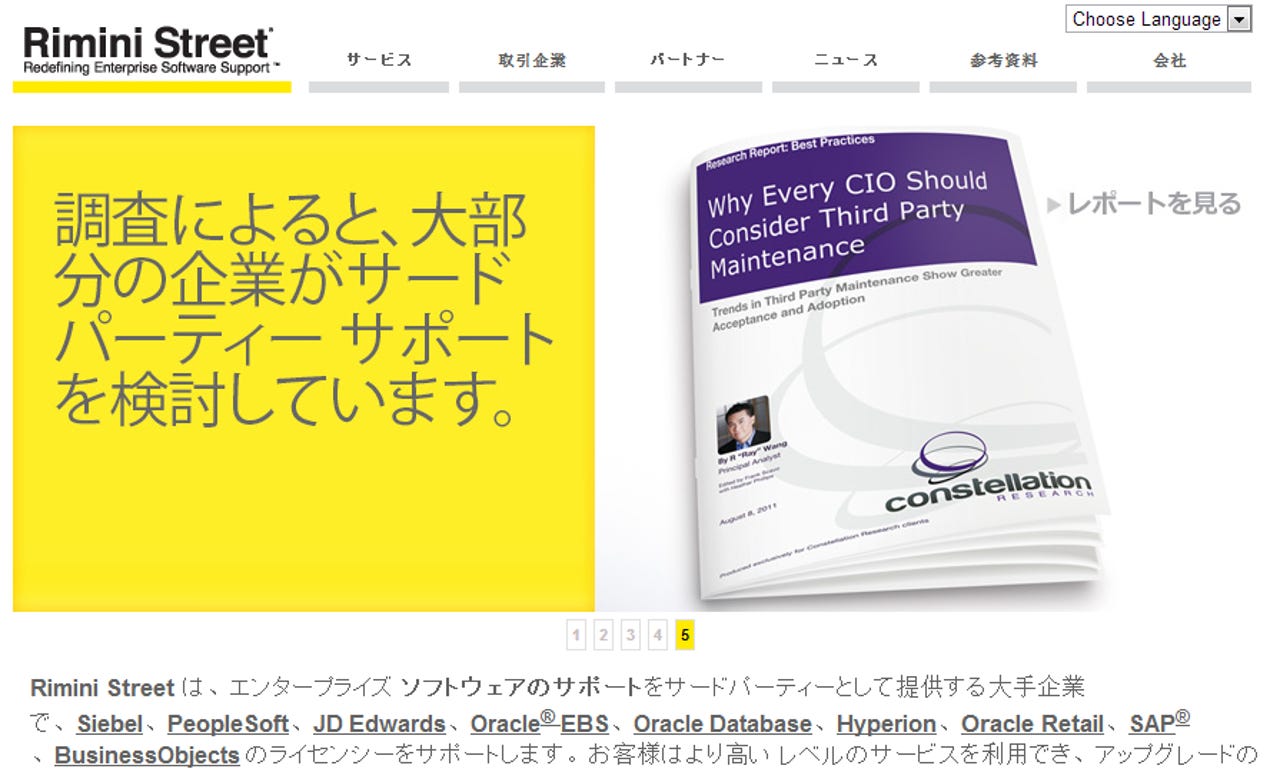Rimini Street broadens its narrative beyond Oracle, SAP third party support

Rimini Street today is best known as a third party support provider for Oracle and SAP customers---and a major pain in the tuchas to those software giants---but the future narrative for the company revolves around much bigger plans.
Simply put, the storyline around Rimini is becoming more interesting as the company eyes an initial public offering probably in 2014. Rimini CEO Seth Ravin in an interview said the company wants to be a top-notch software support vendor for customers who have software as a service applications and on-premise software. Rimini could even be a white label provider to software companies.
Ravin's narrative for Rimini is notable because the one question that hangs over the company is this: What happens when most companies dump on-premise applications for the cloud? Now that transition from on-premise to the cloud will take decades, but strategically it's an issue for the company. What exactly does Rimini support in a cloud-first environment?
"We are experts at enterprise software support and most don't think of us in terms of SaaS," explained Ravin. "But SaaS companies sell premium support and we could have a play there. There's also a BPO (business process outsourcing) play too. Software companies don't do support well and we've been approached by several companies about providing support behind the scenes."
The rationale for Rimini goes like this: The company's service level agreements are better than premium support from SaaS vendors. Why not compete?
If Rimini's three-pronged plan develops it would have a compelling story in the years to come. For now, Rimini has one play and that's providing third party support for SAP and Oracle. The plan for now is to build out support for applications that round out Rimini's portfolio. For instance, Rimini on Monday said it would support Oracle's Retek licensees. Like supporting business intelligence, Rimini's latest addition acts as an enabler for more wallet share.
"Big customers are using ERP and ancillary pieces around the edges. CIOs say 'we have to give you the whole thing,'" said Ravin. "Smaller product lines may not be big moneymakers, but they allow us to take the whole deal."
In addition, Rimini has been expanding internationally. The company has resources in the U.K., Brazil, India, Australia and Japan. In Saudi Arabia, Rimini has set up contracts under Sharia law. Rimini's biggest hurdles abroad are local customers, finding people who buy into the 24/7 support culture and infrastructure such as procuring phones and telecom lines.

Ravin added that in some areas such as the Middle East the main goal isn't to save money. Numerous companies just want better support so in those areas we'll lead with SLAs in our marketing.
Add it up and Rimini has been compiling the key parts to become a public company. The company added Jack Acosta, former CFO of Sybase and Portal Software, to join the board of directors and run Rimini's audit committee. Acosta is the second high profile executive hire in recent weeks. Rimini hired Daniel Winslow, a former Massachusetts representative and trial lawyer, as general counsel.
Winslow's primary task will be to defend a lawsuit that Oracle has filed against Rimini. Ravin said it's unclear when that trial will actually occur. In reality, the Oracle litigation is fading as an issue. Rimini is growing at a 40 percent clip and has 700 customers who are now providing references to more customers. Sure there, are companies that won't go with Rimini until the litigation with Oracle runs its course, but it's not like Rimini is hanging by a thread.
"We expect that the litigation will turn into a tailwind," said Ravin. "We're six times bigger now then when Oracle filed the lawsuit."